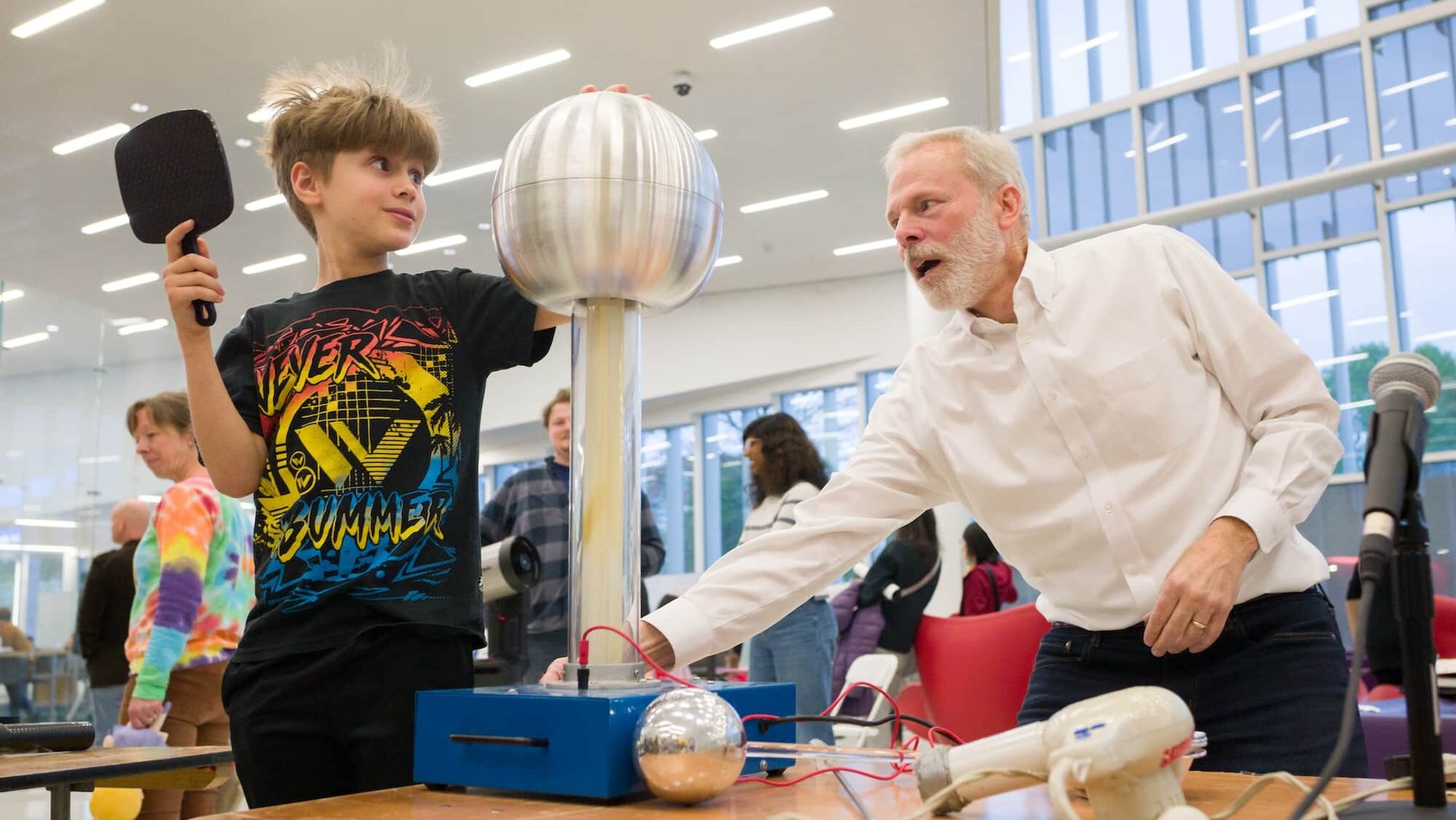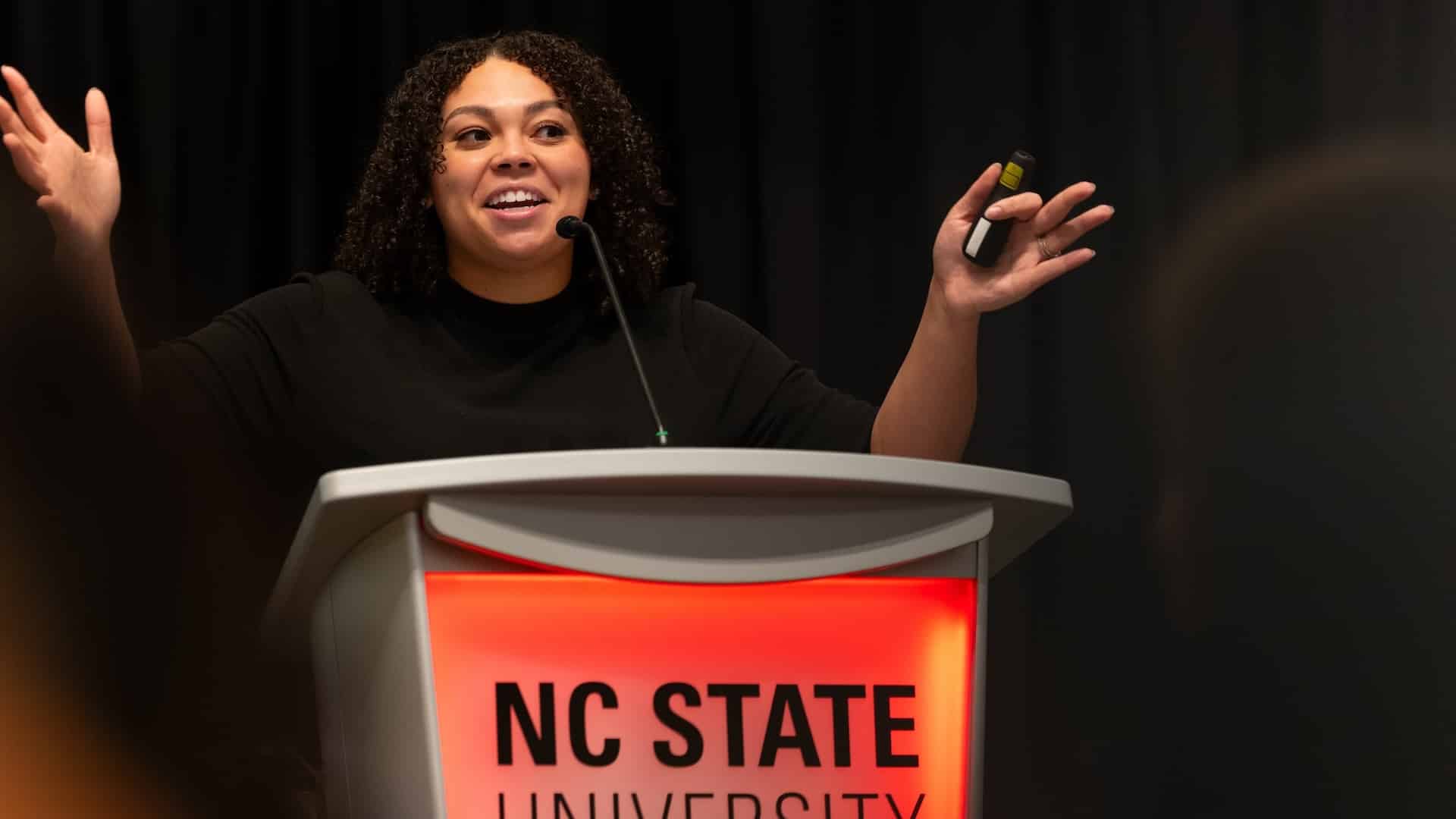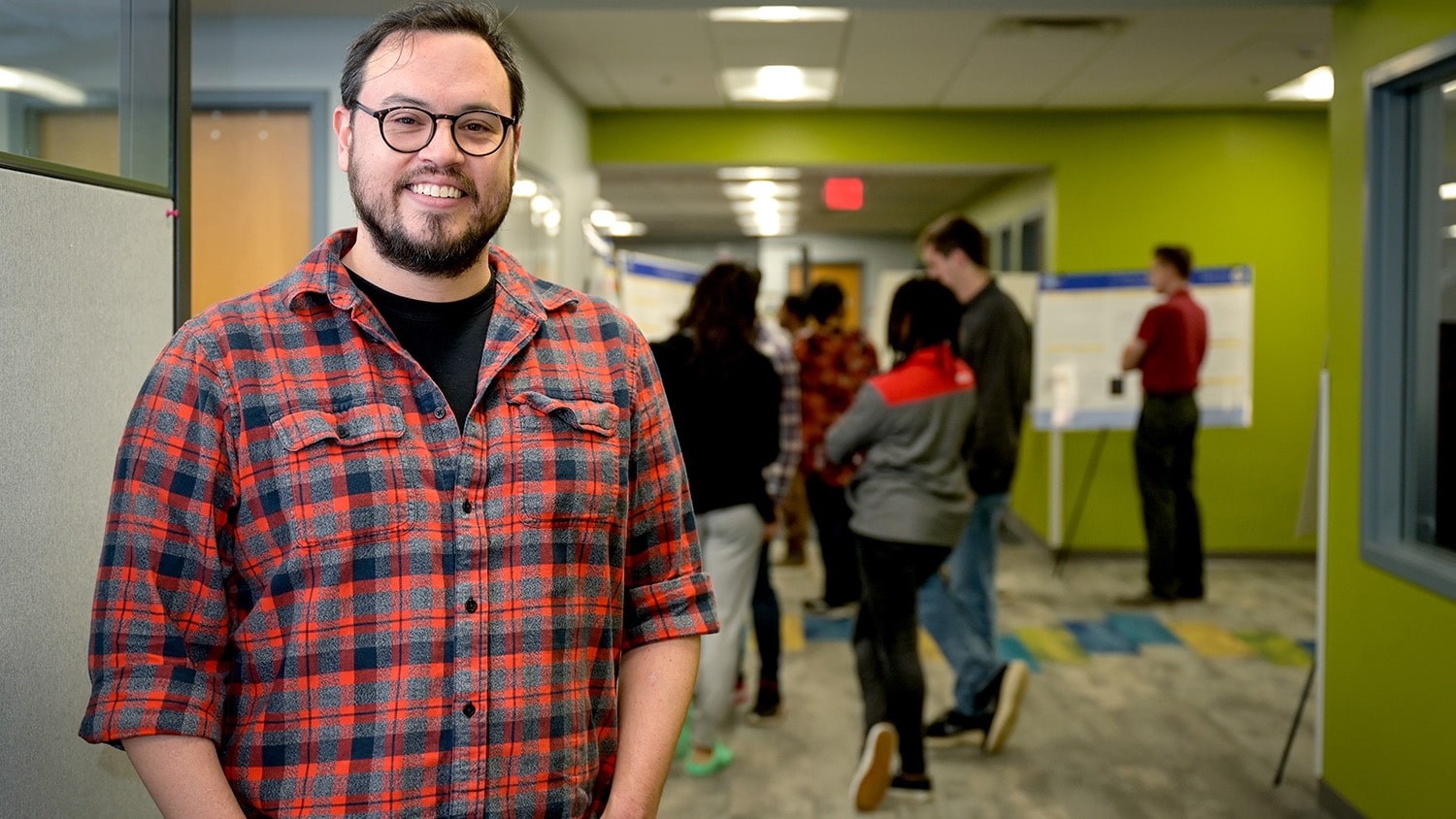Creating STEM Opportunities: Catalyst Program in Photos
Through programs like Catalyst, the College of Sciences is working toward a more diverse and inclusive STEM workforce.
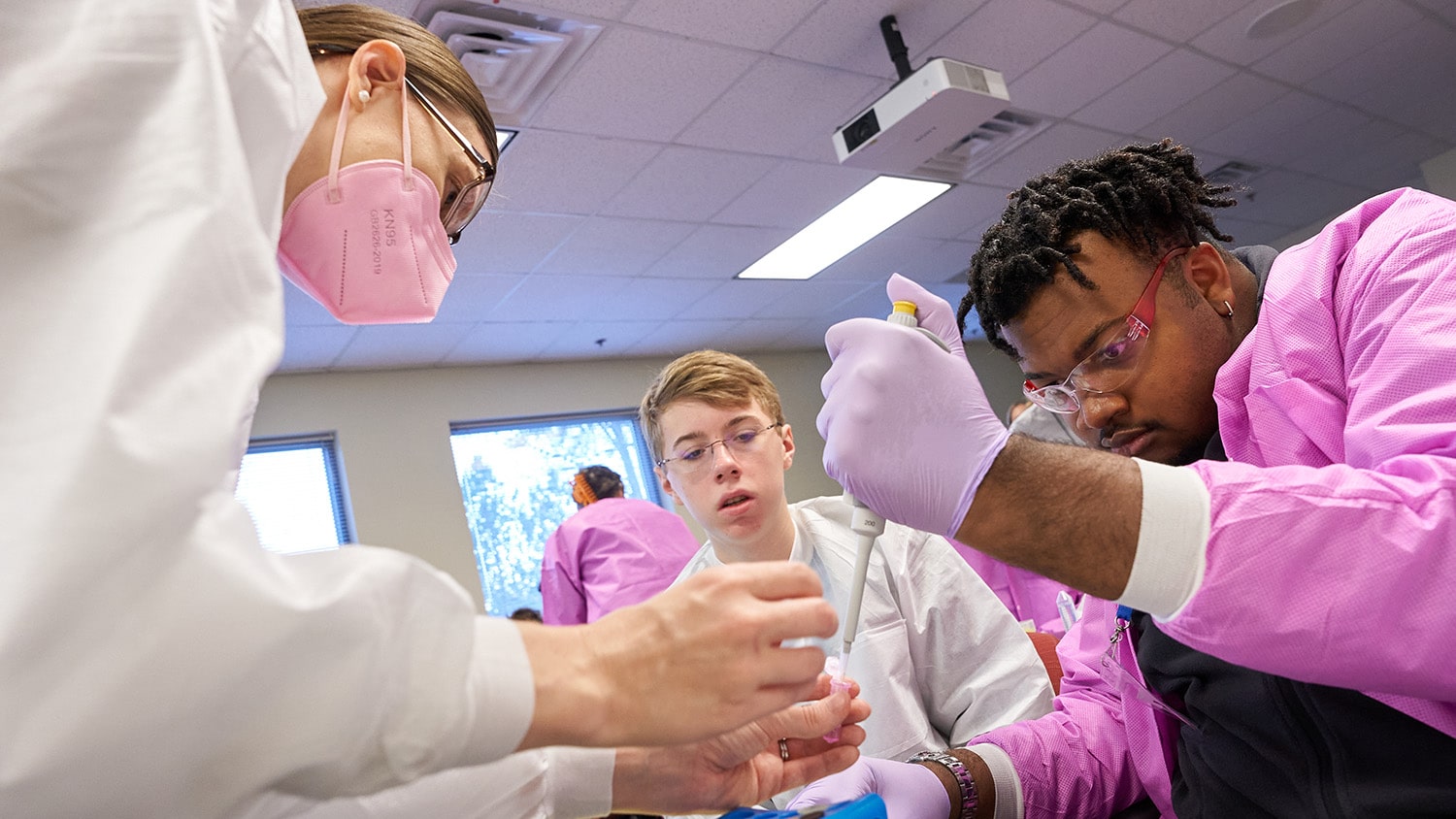
The College of Sciences is committed to bringing its knowledge and resources to K-12 teachers and students across the state to strengthen our communities and diversify the sciences.
Through the Catalyst program, which is part of The Science House at NC State, high school students with disabilities have the opportunity to gain science, technology, engineering and mathematics (STEM) skills through hands-on labs, research, computer programming and more.
Each month, Catalyst students participate in Saturday STEM Sessions to explore different topics. Last month’s session focused on biotechnology — and featured a special visit from Chancellor Randy Woodson.
See some highlights from the event.
Welcoming a Special Visitor
Woodson — who is an internationally renowned plant molecular biologist — dropped in and urged the Catalyst students to explore different STEM majors. He spoke to them about his own work in biotechnology and encouraged them to apply to NC State.
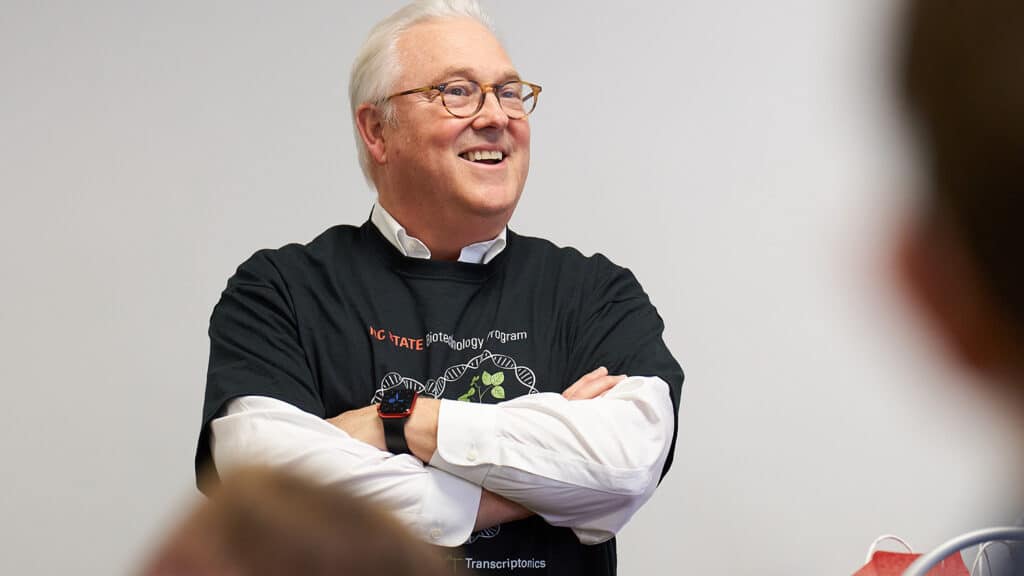
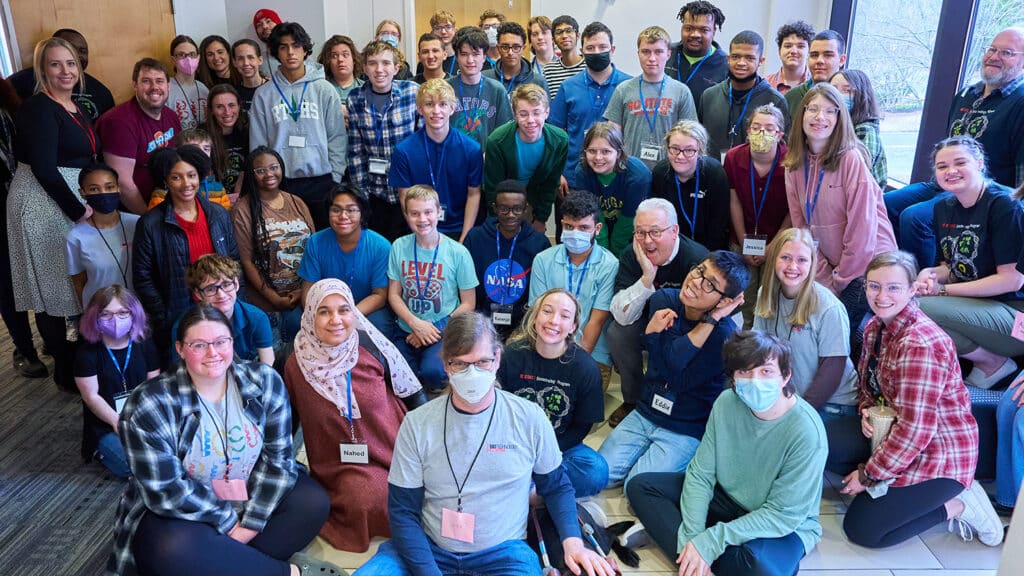
Learning From NC State Scientists
Two faculty members from NC State’s Biotechnology Program — Stefanie Chen, assistant teaching professor in the Department of Biological Sciences, and Melissa Srougi, assistant teaching professor in the College of Veterinary Medicine — and graduate students from the Molecular Biotechnology Training Program gave presentations on antibodies and the spread of disease.
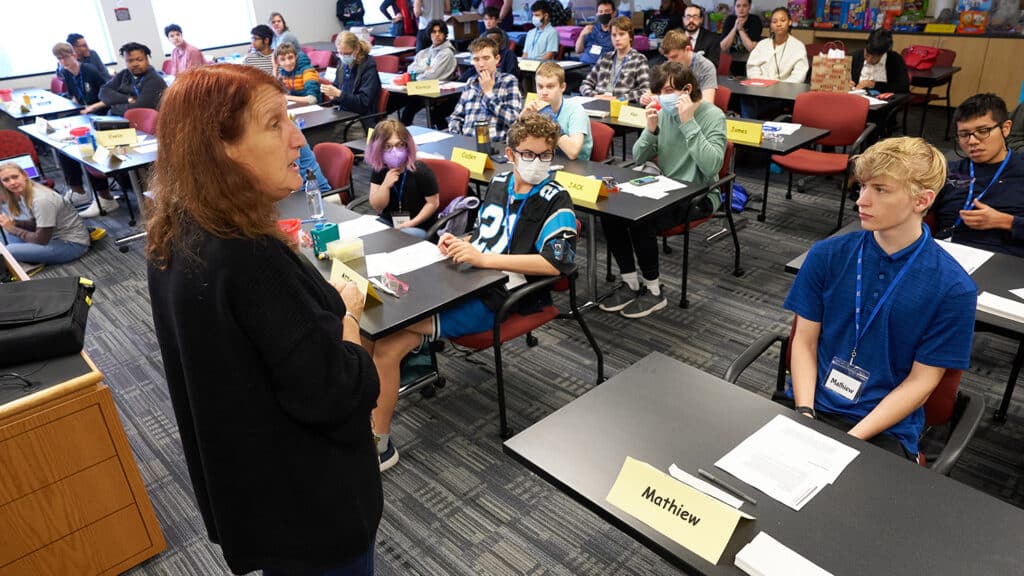
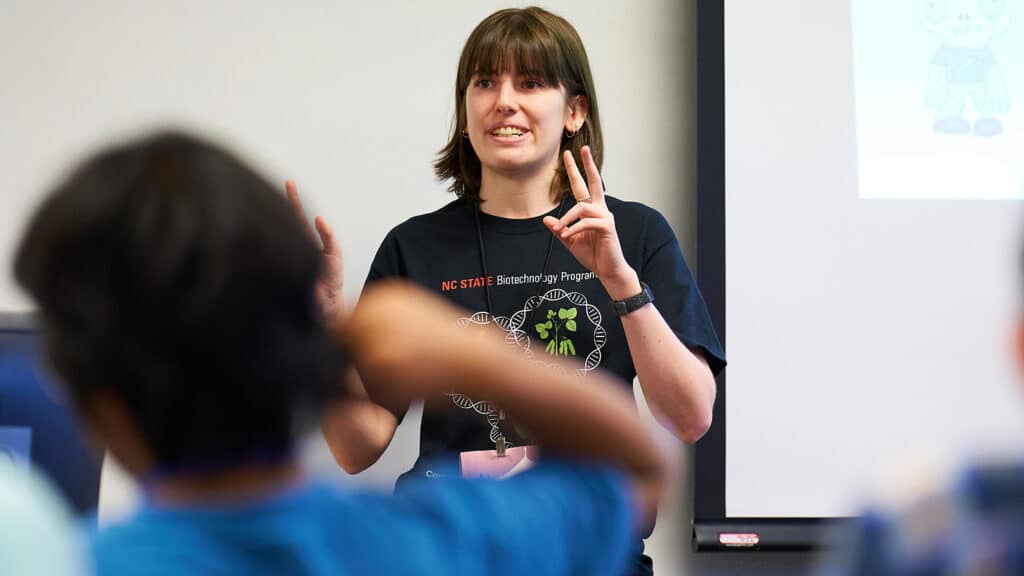
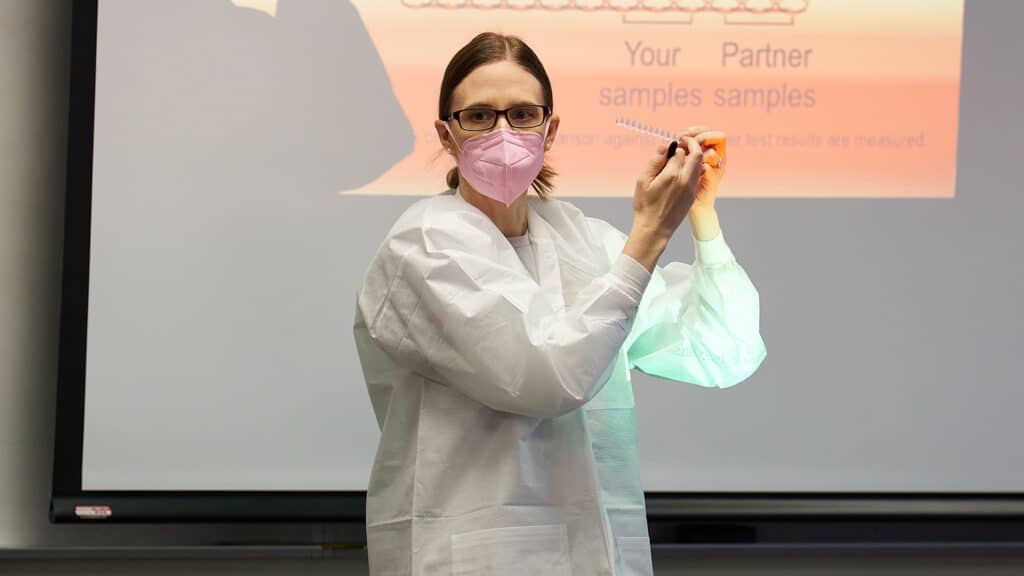
Putting Their Skills to the Test
After the presentations, the students performed an antibody-based test — similar to the at-home COVID-19 tests — known as Enzyme-Linked ImmunoSorbent Assay (ELISA).
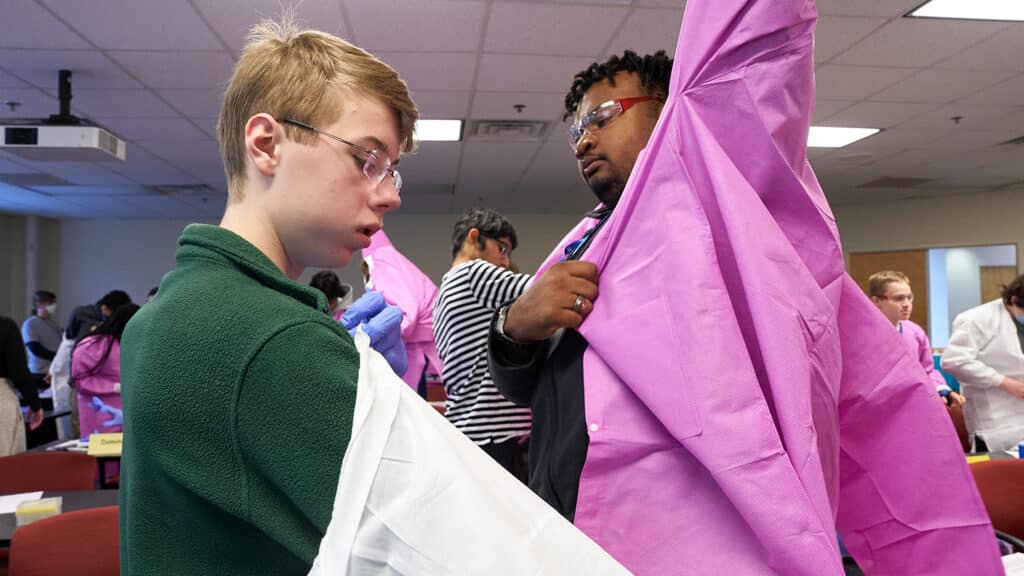
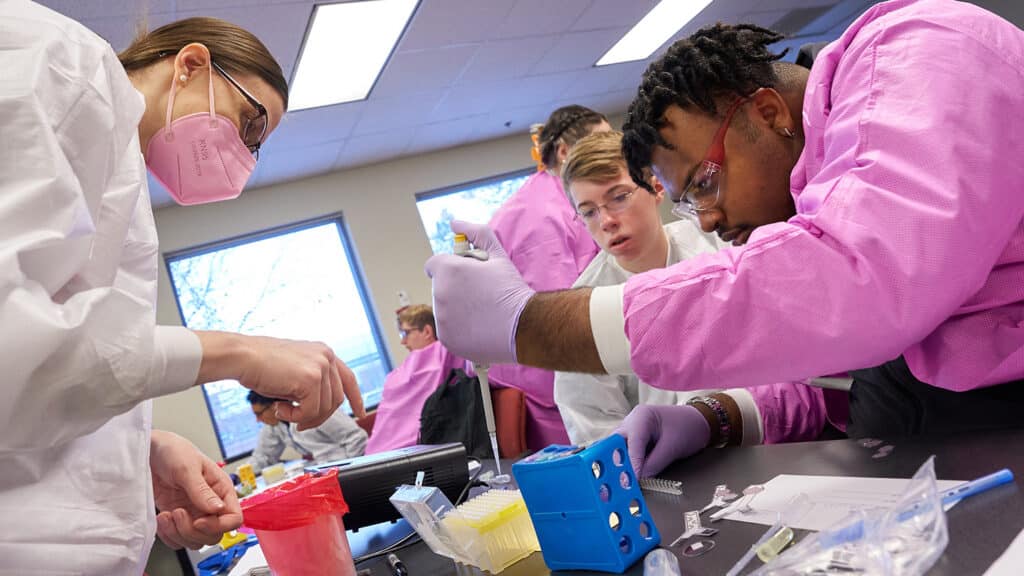
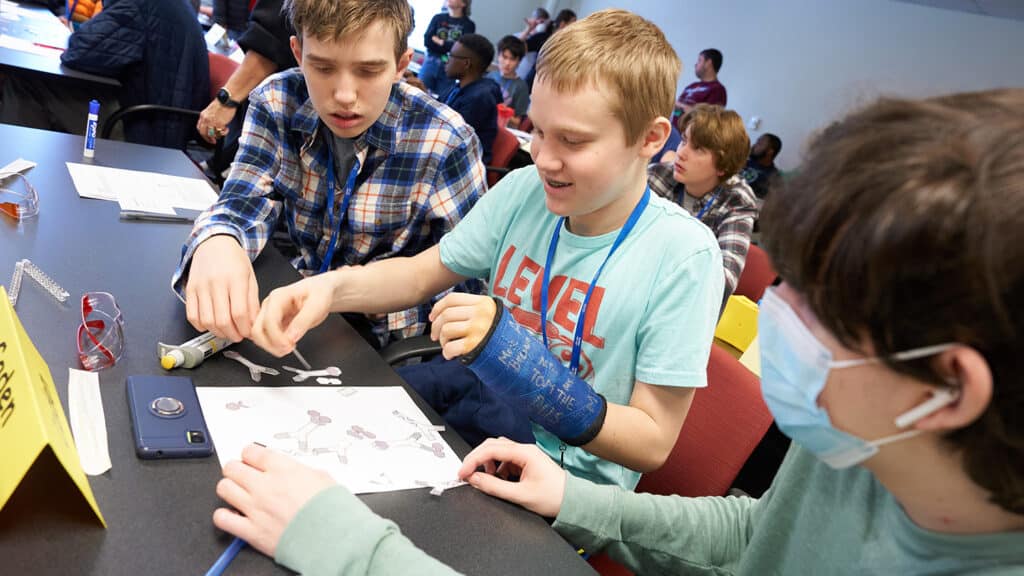
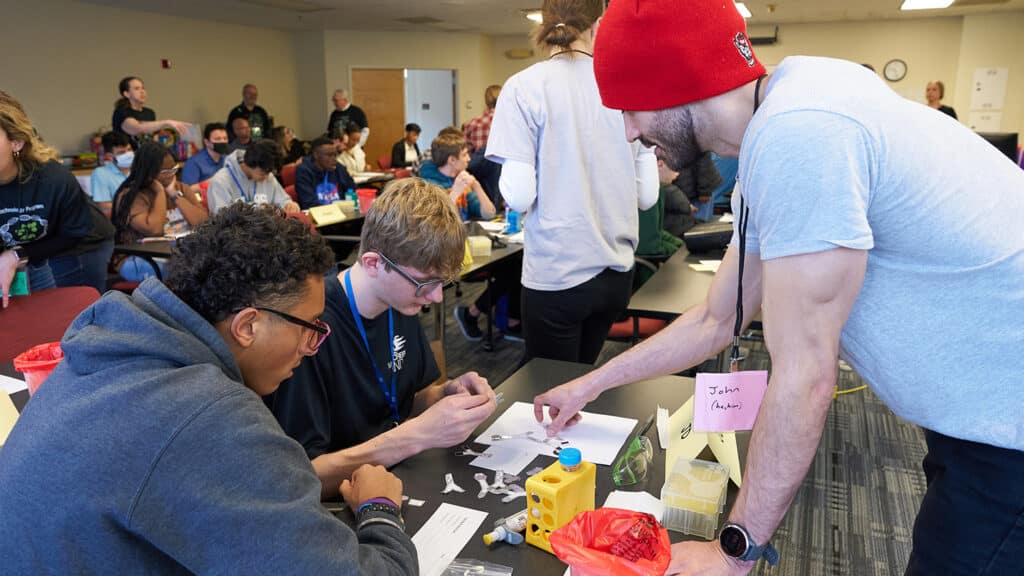
Anyone interested in supporting Catalyst by presenting at Saturday STEM Sessions, hosting interns or leading activities at its resource fair for middle and high school students with disabilities on April 22 can contact Joann Blumenfeld at 919-633-3120 or jrblumen@ncsu.edu.
- Categories:
